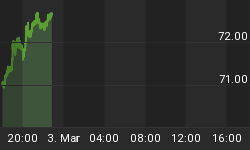One problem with politicians is that when problems they create come to a head, they typically feel this irresistible urge to DO something, rather than to UN-do something, or to simply back off to avoid exacerbating the situation. Too often, that which they end up doing has very little connection to the cause of the crisis, but plays well in the press and superficially makes everyone feel better. Bills that are rushed through Congress under duress are never studied enough, providing too tempting an opportunity to quietly slip in unrelated provisions that erode freedoms in ways that would never pass as a stand-alone bill. We famously saw this with the PATRIOT Act, but Washington learned nothing from that.
The current housing crisis and the corresponding big government fix are another prime example. First of all, the so-called solution will actually make the problem worse. The problem stems from easy credit and a rush to flood the housing and mortgage markets with money. Relaxed or non-existent lending standards led many into mortgages and houses they could not afford. As more foreclosures hit, the lending institutions will continue collapsing like dominoes under the weight of all the bad paper they underwrote. Some are reacting and reintroducing lending standards. Thus the number of buyers in the market for homes is beginning to shrink back to its natural size, and hyper-inflated prices are falling back down to earth. In these ways, the market is trying to correct itself in the wake of the mistakes government intervention encouraged them to make through easy credit. However, this correction is causing pain, especially to Wall Street investors and those who bought homes at the top of the market bubble, never expecting it to crash, always assuming they would easily be able to refinance.
Some mistakenly identify the falling home prices as the disease instead of merely a symptom - which they plan to fix with more easy credit and more liquidity to push more unqualified buyers back into the market for homes they still cannot afford. This is akin to the drug addict identifying withdrawal symptoms as his problem and searching for another fix as his solution. The cycle continues and the problems compound themselves. The addiction deepens.
Addicts are told the first step to recovery is to admit their problem. To cure this addiction to intervention we have to honestly admit the problem and once and for all, kick the habit. That will involve some pain, without a doubt. There is no easy, painless solution to the mess the disastrous economic interventions of the past have wrought. The question is - do we allow some lending institutions to collapse, or do we allow the dollar to collapse? To extend the metaphor, do we endure the temporary discomfort of withdrawal, or do we continue on until there is a fatal overdose? We can delay the agony, but only for a little while, and then we will all end up paying the price for the mistakes of a few.
With the final passage of the Housing Bailout Bill quietly on a Saturday in the Senate, and the President's signature, our government has unfortunately chosen the latter...
















